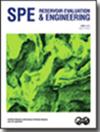Practical Bayesian Inversions for Rock Composition and Petrophysical Endpoints in Multimineral Analysis
IF 1.5
4区 工程技术
Q3 ENERGY & FUELS
引用次数: 0
Abstract
Rock composition can be related to conventional well logs through theoretical equations and petrophysical endpoints. Multimineral analysis is a formation evaluation tool that uses inversions to quantify rock composition from well logs. However, because of data errors and the multivariate selection of petrophysical endpoints, solutions from the multimineral analysis are nonunique. Many plausible realizations exhibit comparable data misfits. Therefore, the uncertainties in rock composition and petrophysical endpoints must be quantified but cannot be fulfilled by deterministic solvers. Stochastic Bayesian methods have been applied to assess the uncertainties, but the high run time, tedious parameter tuning, and need for specific prior information hinder their practical use. We implement Markov chain Monte Carlo with ensemble samplers (MCMCES) to assess the uncertainties of rock composition or petrophysical endpoints in the Bayesian framework. The resultant posterior probability density functions (PDFs) quantify the uncertainties. Our method has fewer tuning parameters and is more efficient in convergence than the conventional random walk Markov chain Monte Carlo (MCMC) methods in high-dimensional problems. We present two independent applications of MCMCES in multimineral analysis. We first apply MCMCES to assess the uncertainties in volume fractions with a suite of well logs and petrophysical endpoints. However, defining the petrophysical endpoints can be challenging in complex geological settings because the values of standard endpoints may not be optimal. Next, we use MCMCES to estimate petrophysical endpoints’ posterior PDFs when the endpoints are uncertain. Our methods provide posterior volume-fraction or petrophysical-endpoint realizations for interpreters to evaluate multimineral solutions. We demonstrate our approach with synthetic and field examples. Reproducible results are supplemented with the paper.多矿物分析中岩石组成和岩石物理端点的实用贝叶斯反演
岩石成分可以通过理论方程和岩石物理端点与常规测井相关联。多矿物分析是一种地层评价工具,利用反演来量化测井资料中的岩石成分。然而,由于数据误差和岩石物理端点的多元选择,多矿物分析的解决方案并不唯一。许多看似合理的实现都显示出类似的数据不匹配。因此,岩石组成和岩石物理端点的不确定性必须量化,但不能用确定性求解器来实现。随机贝叶斯方法已被应用于评估不确定性,但其运行时间长、参数调整繁琐、需要特定的先验信息等问题阻碍了其实际应用。我们使用集合采样器(MCMCES)实现了马尔可夫链蒙特卡罗,以评估贝叶斯框架中岩石成分或岩石物理端点的不确定性。由此产生的后验概率密度函数(pdf)量化了不确定性。在高维问题中,该方法比传统的随机行走马尔可夫链蒙特卡罗方法具有更少的可调参数和更高的收敛效率。我们介绍了MCMCES在多矿物分析中的两个独立应用。我们首先应用MCMCES通过一系列测井和岩石物理端点来评估体积分数的不确定性。然而,在复杂的地质环境中,岩石物理端点的定义是具有挑战性的,因为标准端点的值可能不是最优的。接下来,当端点不确定时,我们使用MCMCES来估计岩石物理端点的后验pdf。我们的方法为解释人员评估多矿物溶液提供了后验体积分数或岩石物理端点实现。我们用综合和现场实例来说明我们的方法。本文补充了可重复的结果。
本文章由计算机程序翻译,如有差异,请以英文原文为准。
求助全文
约1分钟内获得全文
求助全文
来源期刊
CiteScore
5.30
自引率
0.00%
发文量
68
审稿时长
12 months
期刊介绍:
Covers the application of a wide range of topics, including reservoir characterization, geology and geophysics, core analysis, well logging, well testing, reservoir management, enhanced oil recovery, fluid mechanics, performance prediction, reservoir simulation, digital energy, uncertainty/risk assessment, information management, resource and reserve evaluation, portfolio/asset management, project valuation, and petroleum economics.

 求助内容:
求助内容: 应助结果提醒方式:
应助结果提醒方式:


